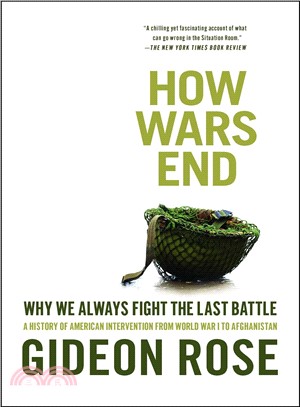Because Americans always forget the political aspects of war. Time and again, argues Gideon Rose in this penetrating look at American wars over the last century, our leaders have focused more on beating up the enemy than on creating a stable postwar environment. What happened in Iraq was only the most prominent example of this phenomenon, not an exception to the rule.
Woodrow Wilson fought a war to make the world safe for democracy but never asked himself what democracy actually meant and then dithered as Germany slipped into chaos. Franklin Roosevelt resolved not to repeat Wilson's mistakes but never considered what would happen to his own elaborate postwar arrangements should America's wartime marriage of convenience with Stalin break up after the shooting stopped. The Truman administration casually established voluntary prisoner repatriation as a key American war aim in Korea without exploring whether it would block an armistice��hich it did for almost a year and a half. The Kennedy and Johnson administrations dug themselves deeper and deeper into Vietnam without any plans for how to get out, making it impossible for Nixon and Ford to escape unscathed. And the list goes on.
Drawing on vast research, including extensive interviews with participants in recent wars, Rose re-creates the choices that presidents and their advisers have confronted during the final stages of each major conflict from World War I through Iraq. He puts readers in the room with U.S. officials as they make decisions that affect millions of lives and shape the modern world��eeing what they saw, hearing what they heard, feeling what they felt.
American leaders, Rose argues, have repeatedly ignored the need for careful postwar planning. But they can and must do a better job next time around��aking the creation of a stable and sustainable local political outcome the goal of all wartime plans, rather than an afterthought to be dealt with once the "real" military work is over.











